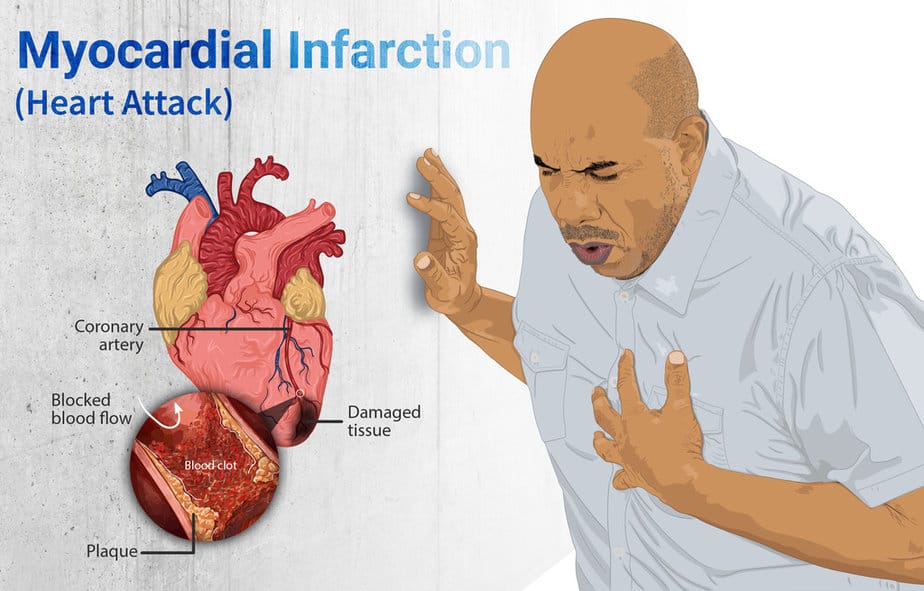Experts typically characterize cardiovascular issues by the heart’s failure to pump enough blood throughout the body. This results in decreased physical and mental capabilities and eventually, heart failure. Factors such as high blood pressure and cholesterol are often implicated in heart disease development. To mitigate the risk of heart disease, physicians advise patients to adopt healthier diets, exercise, and sometimes prescribe medications.

Well-established protective factors against heart disease include diet and exercise, particularly as individuals age. However, emerging research suggests that lesser-understood elements, such as moderate alcohol intake, might also have a role to play.
| This post may interest those with a higher polygenic risk score for heart disease and heavy alcohol drinking. Remember, this article suggests that only low to moderate alcohol drinking may have a beneficial effect on heart health. The study does not recommend alcohol consumption since it has other harmful effects, especially in higher dosages. |
Historically, alcohol has been used as a stress reliever. A recent study published in the Journal of the American College of Cardiology proposes that low to moderate alcohol consumption may decrease the risk of cardiovascular disease by reducing chronic stress, a recognized risk factor for heart problems.
The Study
The researchers discovered that among a group of 50,000 participants, those who consumed light to moderate amounts of alcohol each week were less likely to experience “major adverse cardiovascular events” (MACE). They then conducted further analysis on the impact of this lifestyle on resting stress levels. While cardiologists have noted the positive effects of light to moderate drinking, the precise biological mechanisms at work remain unclear. The findings may enhance our understanding of how alcohol influences heart disease, potentially leading to improved treatments targeting similar pathways.
In this study, the authors drew on data from a large biobank of over 50,000 participants who completed a health survey detailing their alcohol use before the study. Alcohol consumption was categorized into three groups: none/minimal (<1 drink/week), light/moderate (1-14 drinks/week), and high (>14 drinks/week). The researchers evaluated stress levels using a subset of participants who had undergone brain scans for other reasons, usually cancer. They also included medical records (to identify MACE), and demographic data such as cardiovascular risk factors, physical activity, socioeconomic factors, and genetic influences in the dataset.
Results
After a follow-up period of 3.4 years post-study enrollment, the researchers found that 1,914 individuals had experienced new MACE cases. When considering demographic factors, the authors found that participants with either none/minimal or high alcohol use were at a greater risk of developing heart problems compared to those with light/moderate alcohol consumption. This was true even after adjustments for age, sex, and cardiovascular risk factors.
In addition, the authors compared stress levels with drinking levels in about 700 participants using PET scans. The results mirrored the MACE findings: light/moderate drinkers displayed lower stress levels compared to none/minimal and heavy drinkers.
Summary
In summary, the authors discovered that reduced stress levels associated with light to moderate alcohol consumption may decrease the risk of heart-related issues. They also found that alcohol’s protective effect was more pronounced in those with a history of anxiety disorders. This result further supports the notion that stress is intricately tied to the mechanism through which moderate alcohol consumption can benefit the heart.

This study forms a crucial base for developing new treatments that target stress neurobiology to enhance heart health, bypassing the need for alcohol consumption, which can lead to potentially harmful effects. Notably, even light to moderate drinking may be linked with non-cardiac issues such as addiction, cognitive health problems, and cancer.
However, it’s important to note the limitations of this study, which include its observational nature and the possibility of unknown confounding variables influencing the results. Further limitations include reliance on diagnosis codes to determine disease, inability to measure alcohol consumption more granularly or the type of alcohol consumed, and potential reporting bias from self-reporting participants. More extensive neuroimaging studies with a larger sample size could provide additional evidence to support these findings.
Citation
Mezue K, Osborne MT, Abohashem S, Zureigat H, Gharios C, Grewal SS, Radfar A, Cardeiro A, Abbasi T, Choi KW, Fayad ZA, Smoller JW, Rosovsky R, Shin L, Pitman R, Tawakol A. Reduced Stress-Related Neural Network Activity Mediates the Effect of Alcohol on Cardiovascular Risk. J Am Coll Cardiol. 2023 Jun 20;81(24):2315-2325. doi: 10.1016/j.jacc.2023.04.015. PMID: 37316112.
